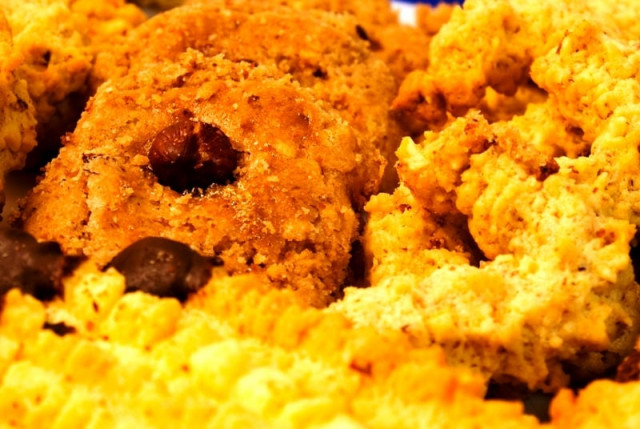From biscuits to drips, original makers battle counterfeit across Sindh
Pakistan is losing business to other countries because of the criminal networks.
KARACHI:
Across Sindh you will find fake Sooper, Rio, Peanut Pista and Ringo biscuits. Indeed, it is a myth that only foreign brands are copied in Pakistan. The local ones suffer as well.
Naveed Ahmed Khawaja, the CEO of English Biscuits Manufacturers (EBM), that make the biscuits, brought samples with him to show at a seminar on counterfeiting held by the Helpline Trust on Wednesday. “Just like fake medicines are harmful, substandard food products are even more dangerous,” he said.
Counterfeiting is believed to cost the government over Rs12 billion a year. “We say that they are small-time crooks, which is not true as there is whole chain of manufacturers, distributors, sellers,” explained Ali Kabir Shah, a partner of Ali & Associates. to bust another myth.
The losses are long term as well. A North American client who was manufacturing about 70% of its goods in Pakistan seized five containers of their counterfeit goods worth $300,000. It is now thinking of withdrawing from Pakistan and moving to Bangladesh or Vietnam. “The products they found were extremely high quality, which shows how much skill we have, but where we are channeling it,” argued Shah.
Consumer protection laws exist in all the provinces of Pakistan except for Sindh. As a result, intellectual property is under constant threat as is the health of people and the government exchequer, said Hamid Maker, of Helpline Trust. “There is also a lack of awareness among the public who cannot differentiate between genuine and fake products,” he added.
To make matters worse, it is a bailable offense. Naveed Ahmed Khawaja of English Biscuits commented on how all of their products have all been copied and there is no law to protect them. Court cases drag on for so long that even if the company pursues it, the illegal manufacturer has enough time to reap the benefit. “The other recourse are raids and freezing their functions but they re-emerge,” he said.
There are so many loopholes in the rules to acquire a license that the counterfeiters have no difficulty. They advertise in a rural newspaper, go to the officers saying that there was no objection and they come away with a licence.
Dr Shaikh Kaiser Waheed, the president and CEO of Medisure laboratories, did not show copies of his company’s counterfeit products because he said that it would scare the consumer from buying their medicines altogether. But he did share that in the most recent survey, carried out by WHO in 2007-08, three per cent of 50,000 samples were found to be spurious.
He is a member of quality control boards in provincial and central labs and shared from his experience that there are many instances when manufacturers deny a counterfeit product is theirs. This is because at hospitals the lower staff is often involved in picking up packages and bottles and refilling them with glucose. “Therefore whenever buying expensive medicines, people should always buy from a known chemist and ask for a warranty bill,” he advised.
The Pakistan Standards and Quality Control Authority monitors a total of 78 items out of which 38 are food. Shabbir Ahmed Qureshi, who is a director, pointed out that they only give licenses to quality products but if they find a product is substandard, the process of taking the maker to court is lengthy.
The Federal Investigation Agency’s director, Azad Khan, explained that they work with the Drug Act of 1976 and Copyrights Act of 1962 but they still don’t have the power to act under the Trademark Ordinance of 2002 and Patents Ordinance of 2002. “The maximum we can do is fine someone Rs100,000 or give three years of imprisonment for infringement,” he said, recommending special courts to tackle this crime.
Published in The Express Tribune, September 27th, 2012.

COMMENTS (1)
Comments are moderated and generally will be posted if they are on-topic and not abusive.
For more information, please see our Comments FAQ